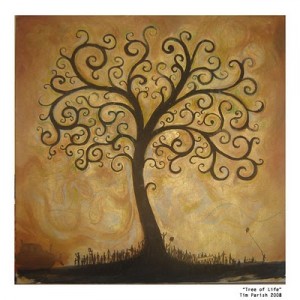What is a Memoir?
A memoir is a blend of real and imaginary, it’s a story that reads like fiction but it’s based on real happenings, feelings, and people. It’s understood these days that a memoir is “the truth” written as accurately as possible, and the fact that your story is true carries weight. Readers grab onto a true story in a powerful way because they identify with the real people who are the “characters” in a memoir. We identify with characters in fiction, too, and we also learn from them, but it’s not the same as in memoir. In well-written story, we enter what John Gardner calls “The Fictive Dream,” where we become fully immersed in the story world and can’t bear to leave. Have you ever stayed up late reading a book you couldn’t put down? That’s being lost in the fictive dream!
The same thing happens in a well-written memoir—we’re immersed in the world of the story and we don’t want to leave. We are learning from the author about aspects of life that are important lessons. A memoir is emotionally and factually true, it’s a story about how we humans learn, stumble, make mistakes, and imperfectly grow, heal, create and transform the world. Memoirs can be seen as present-day spiritual quest. Mark Matousek, author of Sex, Death, and Enlightenment, says, “All memoirs are really a spiritual journey.”
Your spiritual journey—the search for who you are and finding the meaning in your story to share with the readers—does not have to be written in a dour serious way. You might be blessed to see humor and irony in the vicissitudes of life. You will see the arc of your story in a way that no one else can, it will be unique to you. To make your story accessible to others, you draw upon the tools of craft.
Why Write a Memoir?
Beginning a memoir project is like being an explorer of new territory, an anthropologist, a psychologist, and a sky diver all at once—you take risks on the journey, but the journey is your challenge, a way to stretch yourself and to grow as a creative person. It gets your heart beating and draws upon your passion and the unique creative being that you are.
Writing a memoir—a story that is true—gives meaning to your life and connects you to the past and the present. It draws upon your dreams, imagination, and research skills. It hones your ability to use language and to express yourself. You might think of writing a memoir as a journey into self and soul, a means of change and transformation. Memoir writers express that they are changed by the experience and come away with riches that only writing their story could give them.
- Writing a memoir—a story that is true—gives meaning to your life and connects you to the past and the present.
- It draws upon your dreams, your imagination, and your research skills.
- It hones your ability to use language and to express yourself.
- Memoir gives more back to you than you put in—like magic, or like a garden.
- Writing a memoir is a transformational and spiritual path.
- Your story can change others’ lives . . . and your own.
- Remembering brings all parts of you together again.
- Writing with your own voice is empowering, and it continues to empower you, story by story.
How to begin crafting your memoir
- Think about your theme— “How I survived a capsized boat and lived to tell about it” — “Growing up amid crazy people made me stronger” — “Healing from a life-threatening illness is possible.”
- Theme may arise as you begin writing the significant moments of your life—so write for thirty minutes every day and see what arises from your memory banks.
- Follow the passion of your story—write what grabs you, write from the fire in your belly.
- Remember that your story and your writing process are your most important tools. If you write, more and more creative ideas will come to you.
- Create a timeline of your life and choose the most important parts of your story—the turning points. Write these one by one.
- Use fictional techniques to shape and paint scenes that bring a reader into the time, place, and emotion that you experienced.
- Use the internet to fill memories, details, and parts of the story you’re not sure about.
Memoir writing is a journey into yourself through story. Your heart and your memories are the inspiration that propels you from story to story. To write a memoir is to integrate both sides of your brain–the logical, craft oriented left brain, and the dreamy right brain. Start today by writing a story that has meaning to you. Write fast without editing, and enjoy the process!

this is so informational, thank you for this site.Wonderful.
Thanks for the feedback, Jackie!
Hi, do you have any tips about the changing of voice mid-stream in a memoir? I would like to write like a child about my elementary years but then switch to a more adult voice as I write about my high school years. Have you found this to work?
Hi Peter. We’ve been teaching narrative voice in our short course, so I just posted something for you about this: https://writeyourmemoirinsixmonths.com/the-narrative-voice. Generally you don’t want to just switch mid-stream. It’s more effective, if possible, to weave the Voice of Innocence and the Voice of Experience throughout the memoir. The biggest concern is people getting tired of the Voice of Innocence. If you’re telling an entire memoir through the POV of your child eyes it lacks a certain depth, and yet there are examples of authors who pull this off. So I’m not suggesting it can’t be done! I hope this post helps.